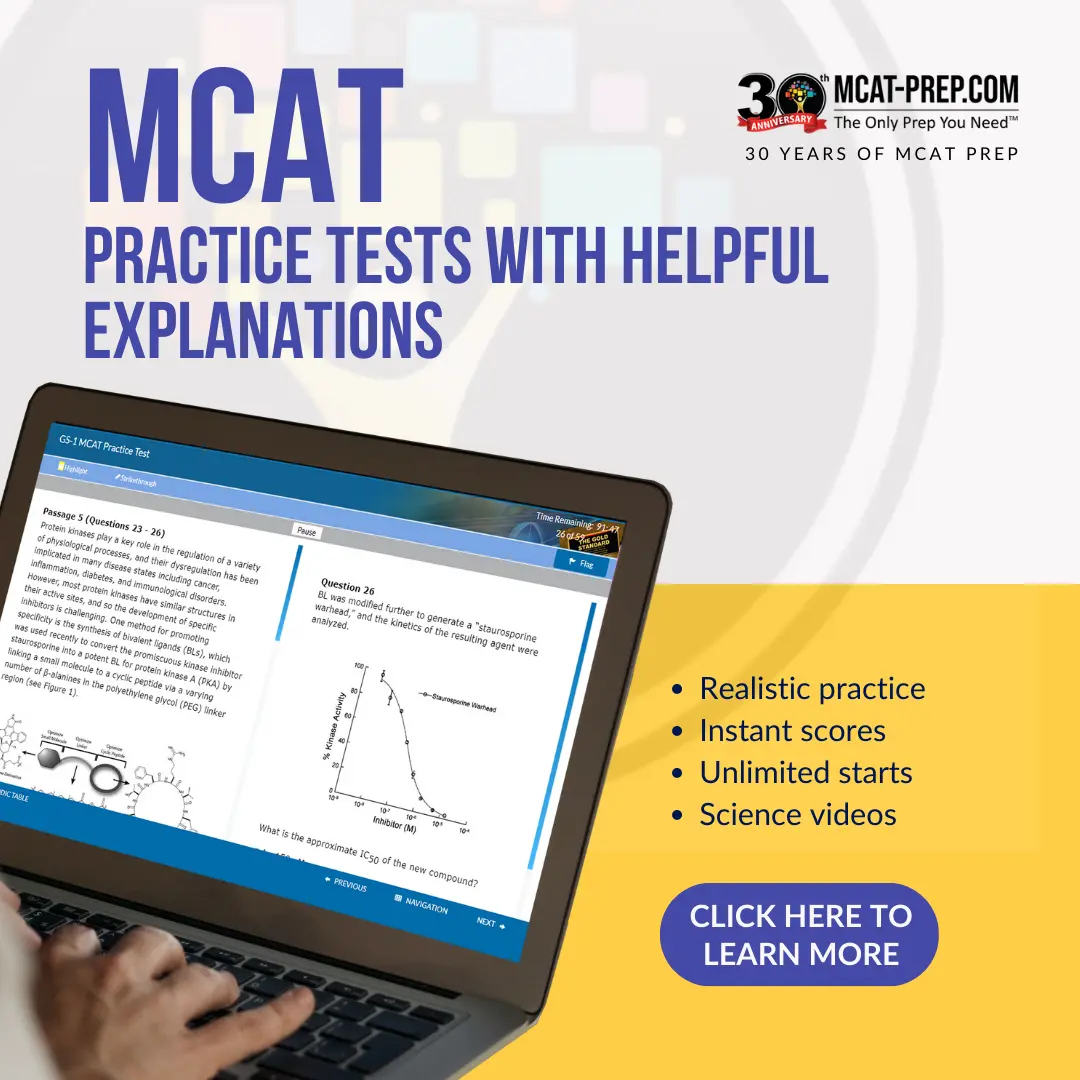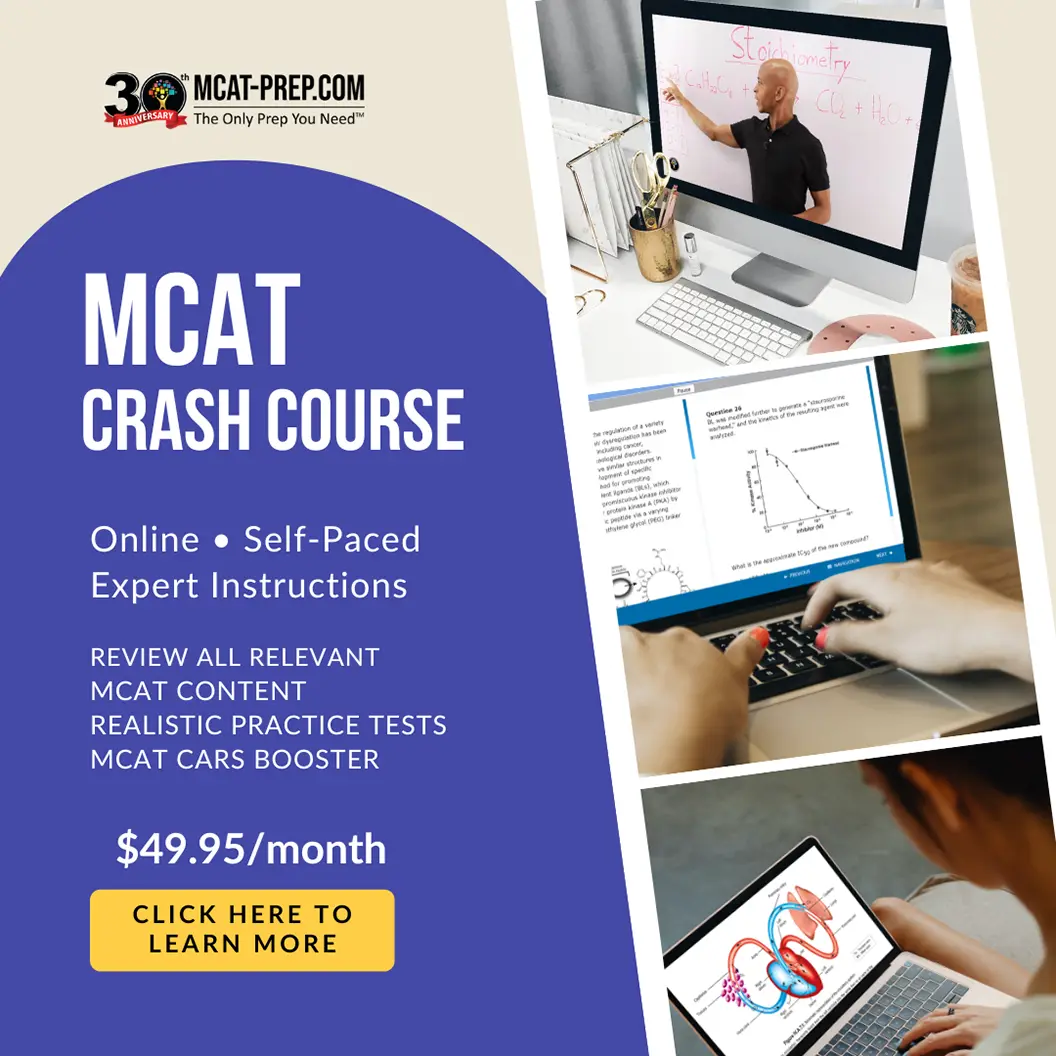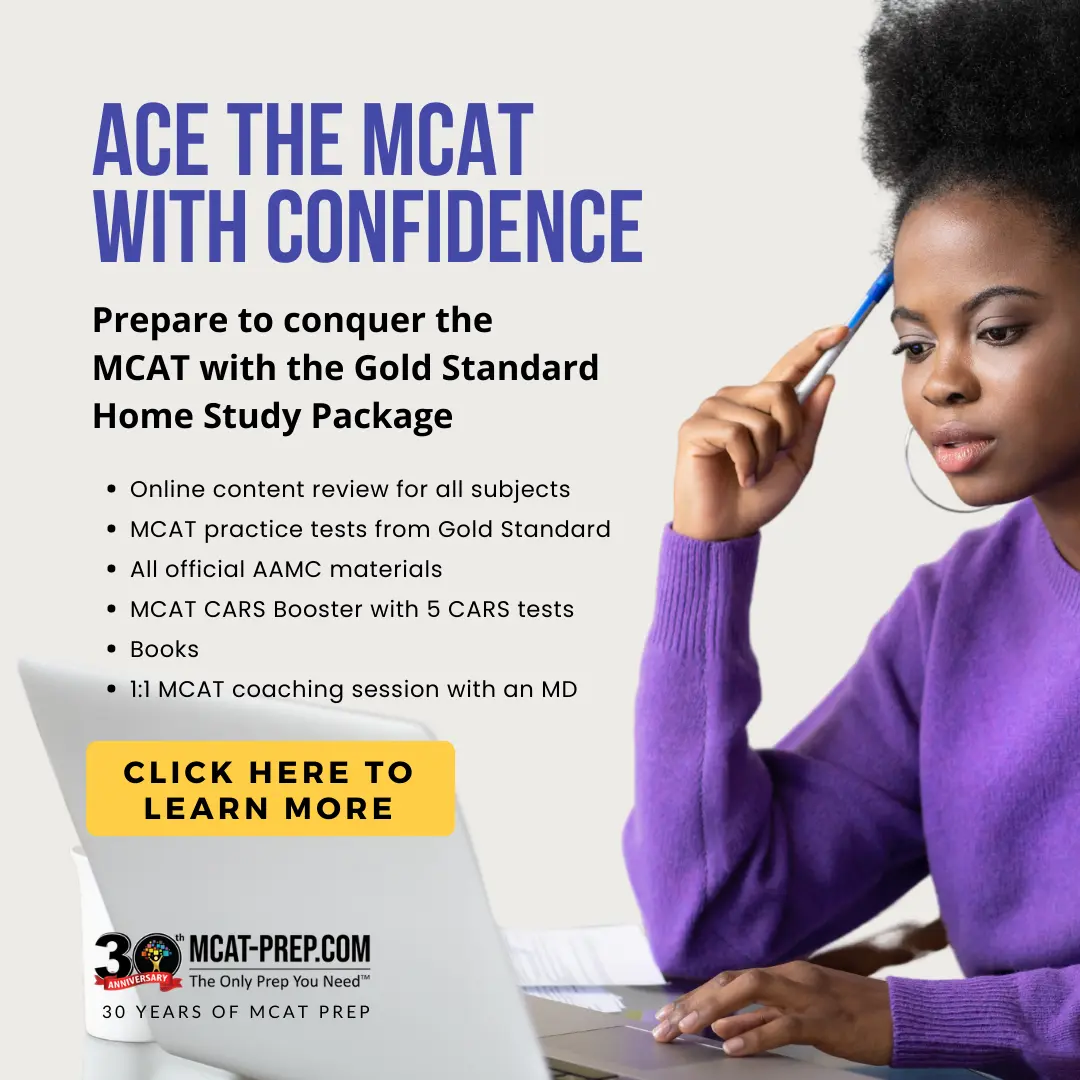How to Take MCAT Practice Tests: A 5-Point Guide
How to Take MCAT Practice Tests: A 5-Point Guide
- July 22, 2024
As we have previously discussed, MCAT practice tests are the best practice you can get when it comes to the MCAT. However, for the most benefit you must make a science out of taking practice tests. Two months before your test date, start taking 2 to 3 practice tests per week. Get the most out of each practice test by 1) studying for the practice test before taking it, 2) taking practice tests in a systematic manner, 3) scheduling time to review each completed practice test, 4) using each practice test as an opportunity to learn and improve, and 5) monitoring your performance and recalibrating as necessary.
1) Study for the practice test.
Large goals are usually easier to achieve when you break them down into smaller goals or milestones. You can think of practice tests as those milestones. For each practice test, set a small goal for yourself such as improving your score in one section by one point or changing your answers on fewer questions thereby minimizing what is commonly referred to as "second-guessing." If you study daily in a manner to achieve these small goals for each practice test, you will ultimately be improving your test-taking strategies and overall performance at the same time.
2) Take practice tests systematically.
Similar to the examinations you will have throughout your medical career, the MCAT tests your stamina more than anything else. Therefore, it would be wise to take easier practice tests early on and progress into more difficult practice tests leading up to your test date. Doing this weekly will train your brain to quickly enter a higher functioning state for optimal performance. And do not worry, most MCAT prep programs will inform you of their practice tests' difficulty levels often comparing them to the difficulty of AAMC practice exams. But if this information is not provided upfront, ask for it.
3) Review your practice tests.
Taking a practice test is only the beginning; your post-exam review is where your "true gold" lies. Reviewing your practice test not only shows you which questions you missed, but also why you missed those questions. Did you just not remember the material? Did you have to guess? Did you forget an equation? Did you misread the question? Did you read all the answer choices? Did you change your answer? Did you run out of time? Answering these difficult questions for yourself is the only way to improve your performance over time.
4) Learn and improve from each practice test, make MCAT notes.
As you think about each question above, go a step further by writing your thoughts down along with key information from the explanations for questions you missed or guessed on. If the explanations are still not clear to you, research the answers and write out how that answer makes sense to you along with any method you can use to arrive at the answer faster. These notes will become your "Gold Notes." Gold Notes are your personal, condensed MCAT prep notes that contain the most valuable learning points from each MCAT practice test you take. Limit your Gold Notes to no more than two pages per test and review them before each practice test you take in the future as well as the day before (or even the morning of) your actual test day.
5) Monitor your performance and recalibrate as necessary.
If time permits, track your practice test scores as you go. Making a game out of your MCAT prep or competing with friends will keep you engaged in the process and, most importantly, motivated. At the same time, should you notice a drop in your scores despite your best study efforts, it may serve as the earliest indicator of burnout. In which case, you likely need to take a week off from practice tests altogether or at least reduce the number of weekly practice tests you are taking. On the other hand, if your scores plateau, consider that as a signal to tweak your study routine or techniques. Such tweaks may involve adjusting the time of day at which you study, reviewing more flashcards, or simply focusing on different subjects.
Before each practice test, you may also find it helpful to review our convenient science summaries: MCAT Physics Equations Sheet, MCAT General Chemistry Review, MCAT Organic Chemistry Mechanisms, and MCAT Biochemistry Review Summary. These along with your Gold Notes should serve as reliable, daily forms of review as you approach test day. Best of luck to you!




